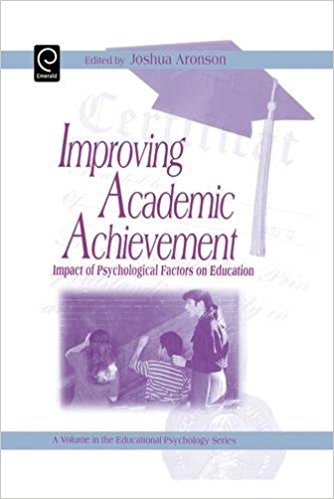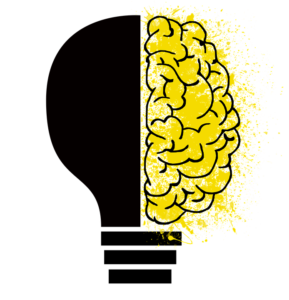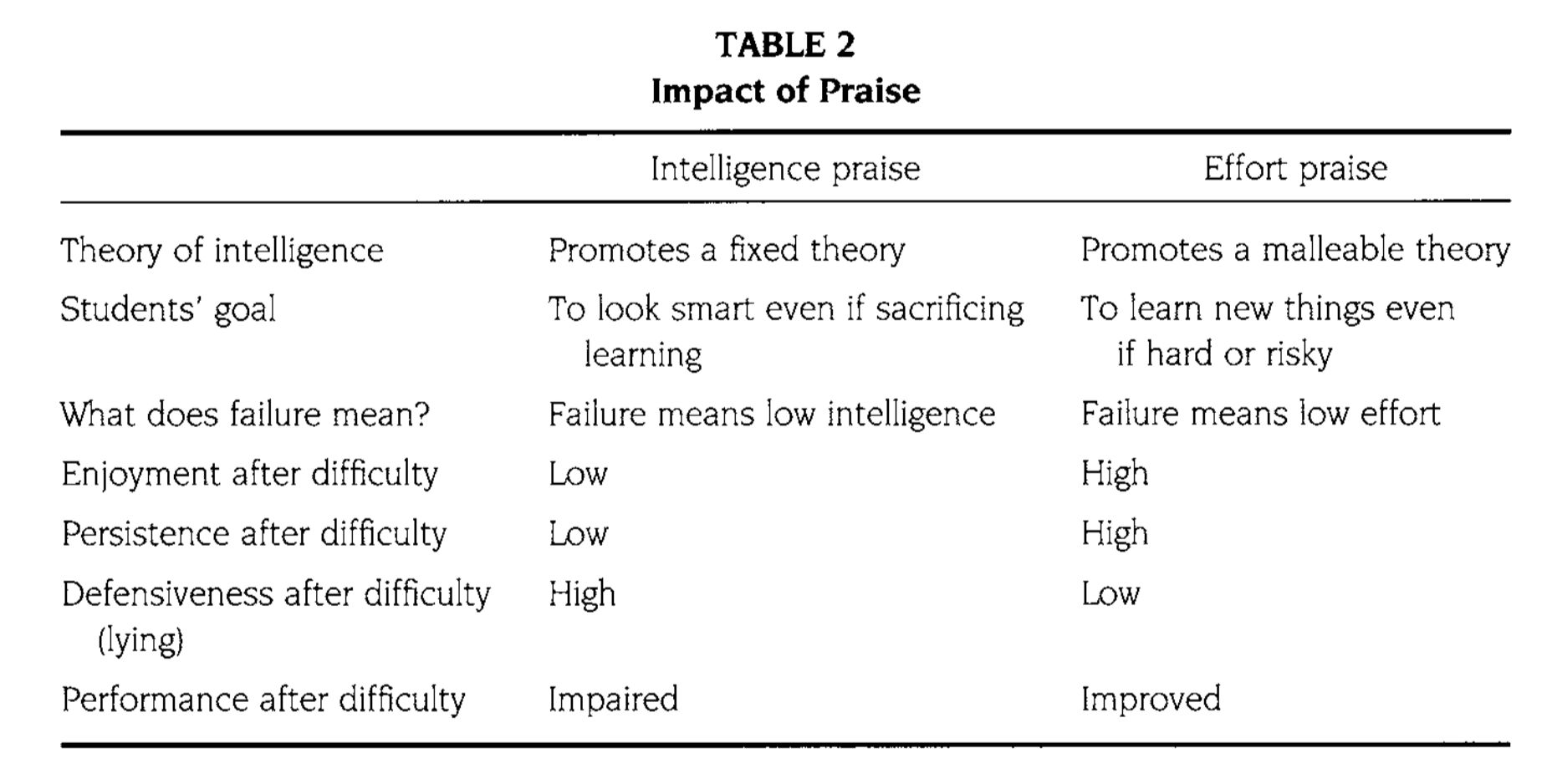By Rick Ness

I’ll start this essay with some “fun” facts: Charles Darwin was an ordinary student whose father told him he wouldn’t amount to anything; John Stuart Mill was thought by his father to be of mediocre intelligence; Tolstoy was considered very dull, William James unexceptional. Michael Jordan was cut from his high school basketball team (Dweck 38). You get the point: these “mediocre” talents all turned out to be geniuses in their field. And we celebrate them for their genius. But we don’t really celebrate them for their hard work. Why? I suppose because genius is sexy and hard work isn’t sexy. Of course, we respect hard work, but we don’t glorify it. We value talent, brilliance, and genius more—whatever those terms mean. We even have a pejorative term for hard working students who achieve success through hard work rather than natural intelligence: we call them grinds.
I’m not questioning these values in themselves; hard work and brilliance are both good things. I’m questioning why we value the dichotomy, which may be a false dichotomy, and, in fact, there are plenty of psychologists who believe that genius is something that grows out of hard work rather than existing independently of it. I’m wondering how this culturally ingrained dichotomy, which is so clear in our imaginations, affects our teaching practices in both writing centers and classrooms.
In the Spring semester of 2017, I participated in an Ongoing Education seminar led by Brad Hughes called What Does a “Growth Mindset” Have to Do with Our Work with Student-Writers? Brad invited a PhD student from the psychology department named Emily Clarke, and Emily generously shared some of her own research and introduced us to some research conducted by the psychologist Carol S. Dweck, who studies academic achievement in terms of “fixed mindsets” and “growth mindsets.”  A fixed mindset, according to Dweck, is one in which students think intelligence is fixed and that one’s performance, whether good or bad, accurately reflects that intelligence. Conversely, a growth mindset perceives intelligence as malleable, that intelligence grows when difficulties and intellectual challenges are overcome. Dweck notes the impact these two different mindsets can have on learning and intellectual growth:
A fixed mindset, according to Dweck, is one in which students think intelligence is fixed and that one’s performance, whether good or bad, accurately reflects that intelligence. Conversely, a growth mindset perceives intelligence as malleable, that intelligence grows when difficulties and intellectual challenges are overcome. Dweck notes the impact these two different mindsets can have on learning and intellectual growth:
“Do students believe their intelligence is a fixed trait or an expandable quality? Do they believe their failures are due to a lack of effort or a lack of ability? Do they believe they are doing a task to learn something new or to show how smart they are? These beliefs are key components of students’ eagerness to learn, their love of challenge, their ability to persist and thrive in the face of difficulty. This is why they are key factors in what students achieve—quite apart from their intellectual ability” (37).
Dweck’s research suggests that students who have a fixed mindset focus on looking smart, and they tend to give up when things become challenging because when performance is tied so directly to who you are, it is actually a risk to your self-esteem to try again and fail. In other words, when students give up, they are protecting their self-image as smart and capable people. On the other hand, students with growth mindsets focus on the challenges rather than IQ. They enjoy the learning process more and don’t mind making mistakes. And perhaps more importantly, they take advantage of new learning opportunities instead of sacrificing them due to fear of failure or not looking smart (41-3). [see table 1]
 How Can Instructors Cultivate a Growth Mindset?
How Can Instructors Cultivate a Growth Mindset?
One takeaway from Dweck’s research is that simply doing the work should not be equated with learning. Nor, for that matter, should doing the work well…or well and quickly. Counterintuitive as it may seem, completing the work well and quickly might even be a sign that a student isn’t learning—or at least not being challenged enough. Which is why one of our most important (and difficult) tasks as instructors is to seek and find evidence of learning.
A second takeaway is a simple pedagogical question: as instructors, should we be more invested in cultivating a growth mindset in students in both our Writing Center and classroom practices?  As English instructors, we are tasked with teaching students writing skills and helping them understand content and to think critically. But how important is it to try to change students’ beliefs about where real achievement and success come from? My feeling is that, in addition to teaching them content and skills, we should cultivate a growth mindset and teach them that success comes from overcoming challenges and not from any inborn talent—and we should make more than just a perfunctory effort to do this. Dweck’s research is thorough and compelling, and it strongly suggests that as TAs we could improve learning outcomes if we taught students to attach failure, difficulty, and success not to identity, but to the process of intellectual growth, which happens with practice.
As English instructors, we are tasked with teaching students writing skills and helping them understand content and to think critically. But how important is it to try to change students’ beliefs about where real achievement and success come from? My feeling is that, in addition to teaching them content and skills, we should cultivate a growth mindset and teach them that success comes from overcoming challenges and not from any inborn talent—and we should make more than just a perfunctory effort to do this. Dweck’s research is thorough and compelling, and it strongly suggests that as TAs we could improve learning outcomes if we taught students to attach failure, difficulty, and success not to identity, but to the process of intellectual growth, which happens with practice.
In her research, Dweck has encountered a lot of young students who literally equate hard work with low intelligence. As English instructors, it can be particularly difficult to sway students from this view because writing is one of the hardest things to do well. How many times have we been told by a student that they’re bad writers, often to find out that their papers are very well written? And perhaps this all-to-common scenario is about more than just modesty or lack of confidence. Maybe it reflects a larger cultural problem about how learning and intelligence are perceived and represented. As Dweck declares, “I believe there is no more damaging view for students than the belief that effort is unnecessary (if you’re smart) and ineffective (if you’re not). And it goes right along with a belief in fixed intelligence” (43).
Needless to say, we’re frequently faced with fixed mindsets at both the Writing Center and in our classrooms, which means we have lots of opportunities to cultivate a growth mindset with students. But how do we go about doing this? In the classroom, I would suggest that an easy way to start is to simply introduce them to the fixed/growth mindset theories on day 1. Assure them that writing is challenging, and that it’s normal to struggle, and that struggle is not a sign of inability but a sign that learning is happening. Tell them that you—an experienced writer, perhaps a published one—struggle with writing, too. Why not even tell them anecdotes about Charles Darwin and Michael Jordon? Everyone will identity with them. Tell them that intelligence is malleable and can grow significantly. Fixed mindsets are often assumed by students and they don’t know of any other way to think about learning, so simply explaining what a growth mindset is on day 1 can be a significant first step toward changing their attitude toward learning. Another way, as Dweck discusses, is by praising effort rather than intelligence. Her study shows that students who are given intelligence-praise performed worse when things became difficult, whereas students who received effort-praise improved. [see table 2]
 In the Writing Center (and in student conferences), we might use language like “I can see you put a long of work into this paper and it paid off” rather than “you’re an excellent writer.” This might seem counterintuitive because compliments are confidence builders, and making students more confident writers is indeed very important, and it’s part of our mission at the Writing Center. But the other side of that coin is that compliments about ability can later be a confidence destroyer when the student meets a difficult challenge, because that difficulty might be interpreted as a lack of ability. So praising effort in a way that actively cultivates a growth mindset might be a more reliable way to achieve that mission. In fact, we might think of it as a “growth rhetoric” that we incorporate not only in our criticism and praise, but also in our syllabi, our lesson plans, and the conversations we have about writing.
In the Writing Center (and in student conferences), we might use language like “I can see you put a long of work into this paper and it paid off” rather than “you’re an excellent writer.” This might seem counterintuitive because compliments are confidence builders, and making students more confident writers is indeed very important, and it’s part of our mission at the Writing Center. But the other side of that coin is that compliments about ability can later be a confidence destroyer when the student meets a difficult challenge, because that difficulty might be interpreted as a lack of ability. So praising effort in a way that actively cultivates a growth mindset might be a more reliable way to achieve that mission. In fact, we might think of it as a “growth rhetoric” that we incorporate not only in our criticism and praise, but also in our syllabi, our lesson plans, and the conversations we have about writing.
I would love to open up a conversation about this, and I invite comments about how we can cultivate a growth mindset (and discourage a fixed mindset) in our Writing Center and classroom teaching practices. Feel free to offer suggestions and share experiences you’ve had with the fixed and/or growth mindsets in your own teaching. Thanks for reading!
Lisa Simpson’s fixed mindset
Works Cited
Dweck, Carol S. “Messages That Motivate: How Praise Molds Students’ Beliefs, Motivation, and Performance (in Surprising Ways). Improving Academic Achievement : Impact of Psychological Factors on Education. Ed. Joshua Aronson. Boston: Academic Press, 2002.


Thanks for this post, Rick! This is a concept I heard a lot in my background in early childhood education, so it’s interesting to hear it in higher ed. I agree that it’s important for us to loosen the myth that writing is simply a matter of “talent.”
I think that, in addition to acknowledging effort, specific feedback can be useful in this regard. That is, the more students can isolate the particular skills they’re learning to apply, the more aware they can become of their own growth. This is something most tutors already do, but I think a lot of the things we already do at the Writing Center are actually growth-oriented: emphasizing process, fostering dialogue, etc.
I also want to point out something I’ve thought about a lot in other contexts, which is that mindsets and the ways they’re discussed can be quite culture-dependent. Moreover, while not the case here, I’ve sadly seen these discourses around fixed vs. growth mindsets, “grit,” etc. disproportionately applied to students from low-income backgrounds. So I think it’s also important to acknowledge the material challenges students face as well as the external messages they may be receiving.
Rick,
Thanks for this thought-provoking post!
As someone who is really interested in how we talk with writers, I really liked your discussion about compliments: “In the Writing Center (and in student conferences), we might use language like ‘I can see you put a long of work into this paper and it paid of’ rather than ‘you’re an excellent writer.’ This might seem counterintuitive because compliments are confidence builders, and making students more confident writers is indeed very important, and it’s part of our mission at the Writing Center. But the other side of that coin is that compliments about ability can later be a confidence destroyer when the student meets a difficult challenge, because that difficulty might be interpreted as a lack of ability. ”
As I read this, I thought of a recent study I read: “Formulaic Interactions with Engineering Students” (2005). The authors analyzed 107 tutor compliments in 13 sessions and the offer these “suggestions to tutors and others who work with technical writers:
1.) Use descriptive words and phrases with a specific semantic load, such as subtle, concise, flowery, and consistent. Other effective descriptors for technical writing include quantitative, spatially, legible, illustrative, defined, logical, exact, and cohesive.
2.) Focus on the writer’s ability and expertise as well as particular elements in the writing, e.g., It’s clear you’ve worked a lot with LEDs, and you’ve explained their life span clearly in this section.
3.) Close with one or two compliments to balance advice and send the writer off with a sense of confidence, e.g., You’ve integrated your textual and visual elements effectively. Now I would expand those interpretation sections and add a technical summary.
By implementing these suggestions, tutors and other people who work with technical writers can generate compliments that do more than function phatically, or to express good feelings. Instead, they can create compliments that instruct, pointing to specific elements of the writing that are working well.”
So, a part of what makes complimenting, or giving praise, effective comes down to how that praise is connected to advice. I figured I would share this article for anyone who’s interested in reading further about how complimenting/praise happens in tutorial talk.
I’m really taken by this idea that doing the work–even doing the work well–doesn’t really measure student learning. I absolutely agree and I think this framework offers a really insightful way for understanding why that is.
I wonder: What could we accomplish if we were upfront with students about these additional course goals, if we talked with them about the research on fixed and growth mindsets and what learning looks like in action?
Thank you for posing these questions and suggestions, Rick! I’ve been thinking a lot lately about “mindsets” and “ways of thinking” as learning goals in higher education, but mostly in terms of the threshold concepts framework, so I really appreciate being reminded of Dweck’s research on growth mindsets. What threshold concepts and growth mindset seem to have in common is this necessity for an ontological and epistemological shift, wherein the learner experiences a change in how they understand the world and their place in it. This can be a difficult shift, and it’s one that likely will occur over and over again in different contexts. I’m newly appreciative of the capacity of writing center pedagogy to target, through conversation and collaborative work, conceptual understandings of process and growth that underlie performance (the paper, the analysis, the articulation…).
What a great post, Rick! I really like the idea of “growth rhetoric” as a way to open up the scope of where we can motivate students to develop growth mindsets.
I taught a workshop for undergraduates last semester that was focused on developing a growth mindset toward writing. We discussed common attitudes toward writing and I tried to push students to develop new ways of thinking about failure and difficulty in writing. Throughout the workshop, I emphasized the value of the Writing Center and urged them all to set up a meeting with a tutor to discuss their next writing assignment.
Although all of the participants said that our conversation during the workshop was really helpful for rethinking their attitudes toward writing, I left feeling unsure about how well this new perspective would hold up when they next receive “fixed mindset” feedback from their instructors. As I revise the workshop for next semester, I want to keep thinking about ways that students can develop growth mindsets despite the rather unhelpful feedback they might receive from instructors who have yet to be enlightened about growth mindset rhetoric. I’d love to hear your thoughts!
Thank you so much for this thoughtful post. I think the labels “good” and “bad” writers so dangerously obscure the conditions which have surrounded writing–particularly the economic, social, and political privileges that have supported and encouraged writing. I have spoken with students who feel like writing has always come easily to them and thus they have trouble empathizing with the struggles of their peers. I see it as part of my role to help those students consider different ways that their writing has been sponsored and supported and to help them consider new genres, audiences, and purposes because what counts as good writing so closely depends on the rhetorical context. Thank you for helping me prioritize growth!
[…] I’ll start this essay with some “fun” facts: Charles Darwin was an ordinary student whose father told him he wouldn’t amount to anything; John Stuart Mill was thought by his father to be of mediocre intelligence; Tolstoy was considered very dull, William James unexceptional. Michael Jordan was cut from his high school basketball team (Dweck 38). You get the point: these “mediocre” talents all turned out to be geniuses in their field. And we celebrate them for their genius. But we don’t really celebrate them for their hard work. Why? I suppose because genius is sexy and hard work isn’t sexy. Of course, we respect hard work, but we don’t glorify it. We value talent, brilliance, and genius more—whatever those terms mean. We even have a pejorative term for hard working students who achieve success through hard work rather than natural intelligence: we call them grinds. (click here to continue reading) […]